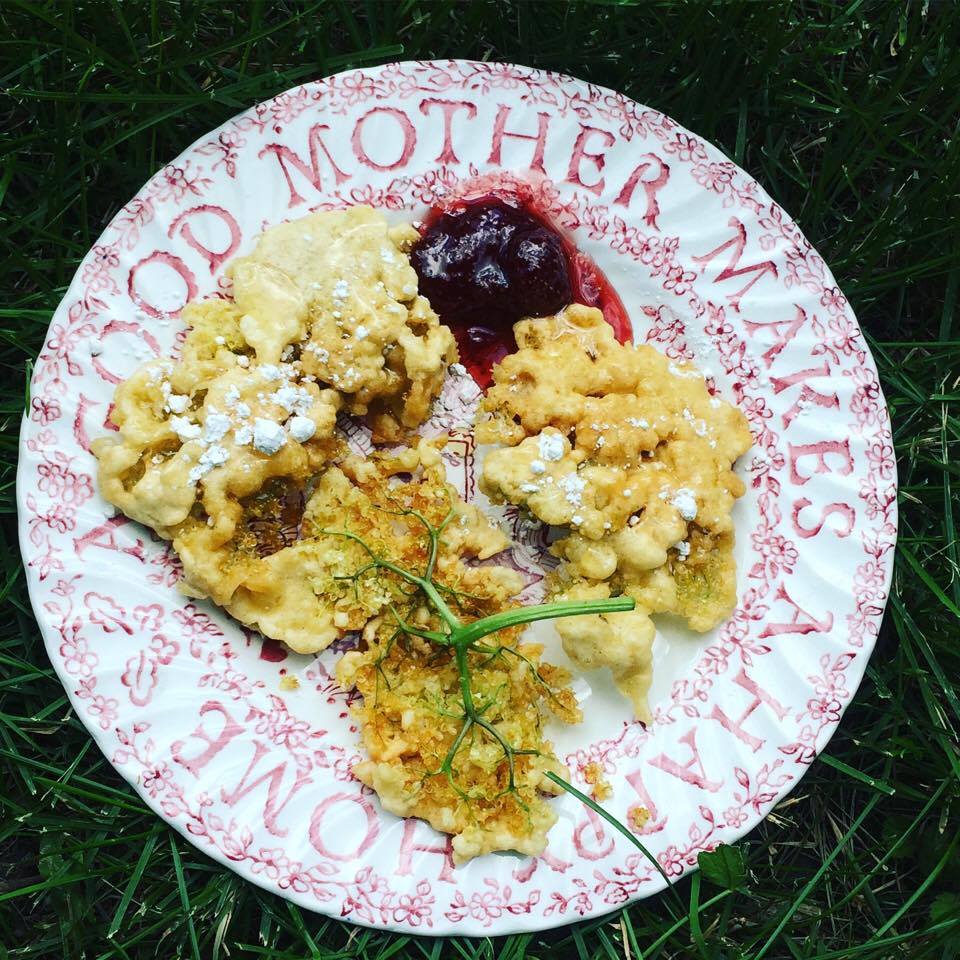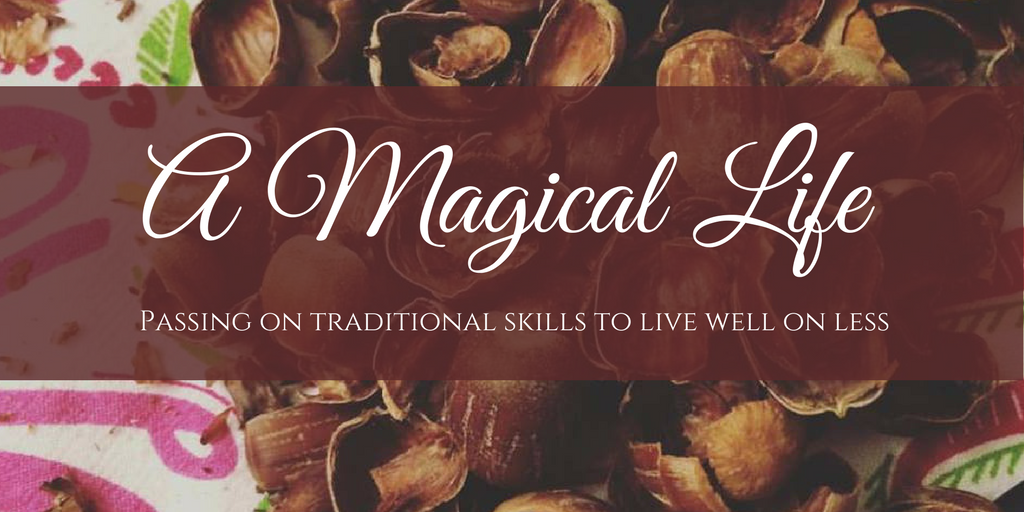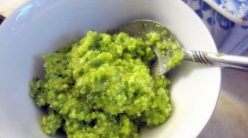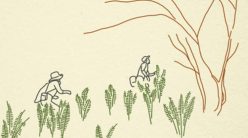This past year was a pretty good year for foraging for our family. We foraged several hundred pounds of wild foods total, including some that were new to us. We also foraged quite a nice variety of wild foods and medicinal plants — 35 different kinds!
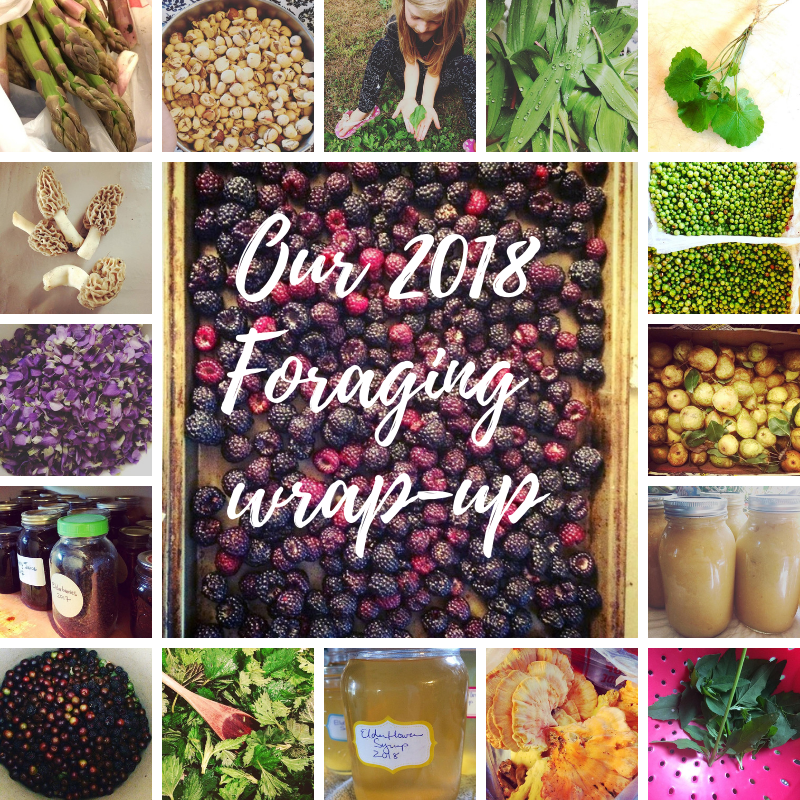
We foraged in our own back yard, in parks, on rural roads and in our neighborhood (with permission from businesses and landowners).
Here’s a list of all of the wild edible foods (and a few wild medicinal plants) that we foraged as a family in 2018:
- Maple Sap (for syrup)
- Walnut Sap (for syrup) *
- Ramps
- Asparagus
- Violets
- Acorns
- Dandelion flowers
- Elderflowers
- Elderberries
- Stinging Nettles
- Black raspberries
- Raspberries
- Gooseberries
- Choke Cherries
- Chicken of the Woods mushrooms *
- Hen of the Woods mushrooms *
- Pheasant Back mushrooms
- Turkey Tail mushrooms *
- Morel mushrooms
- Wild Garlic *
- Garlic Mustard *
- Lambsquarters *
- Mulberries
- Maple seeds *
- Apples
- Pears
- Wild Plums
- Spruce Tips
- Wild Grapes
- Plantain
- Cattails
- Milkweed (blossoms * and buds)
- Huckleberries *
- Catmint
- Mullein *
* This year was our first time foraging these
Some of these were just gathered in small quantities to try — like maple seeds, which make an interesting munchie after you strip them of their paper covering but were gathered in the wrong time of year to taste best. Some of these were gathered in large quantities and really put to use in our kitchen — like acorns, elderberries, apples, pears, ramps, nettles, black raspberries, mulberries, asparagus, gooseberries and chicken of the woods.
https://www.instagram.com/p/BoeWaNygxeZ/
We harvested a record amount of wild asparagus this year, topping out well over 60 pounds over the course of May.
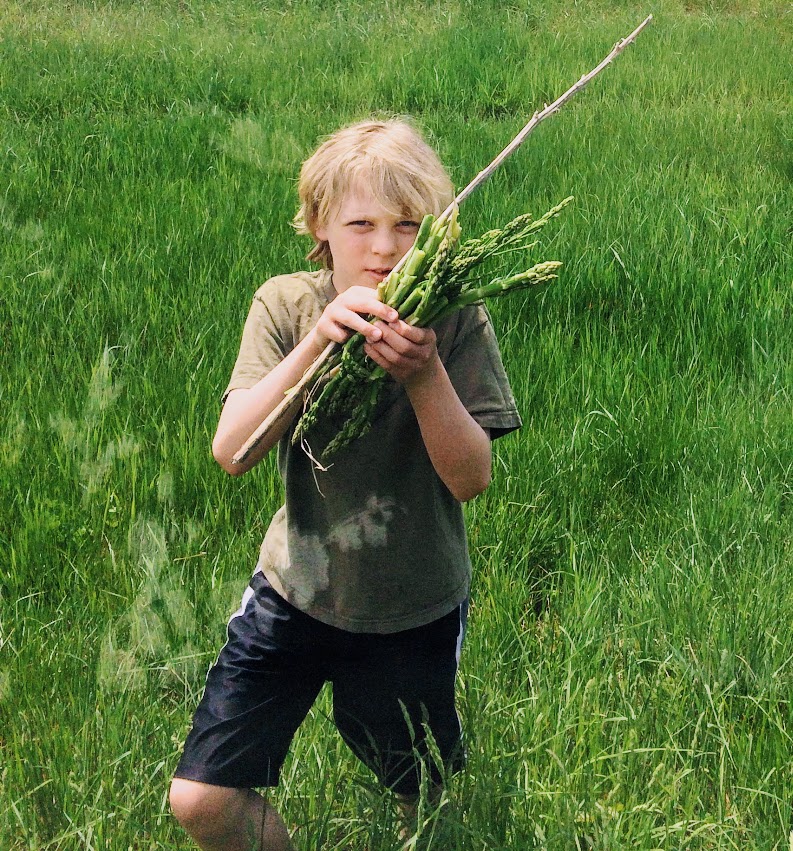
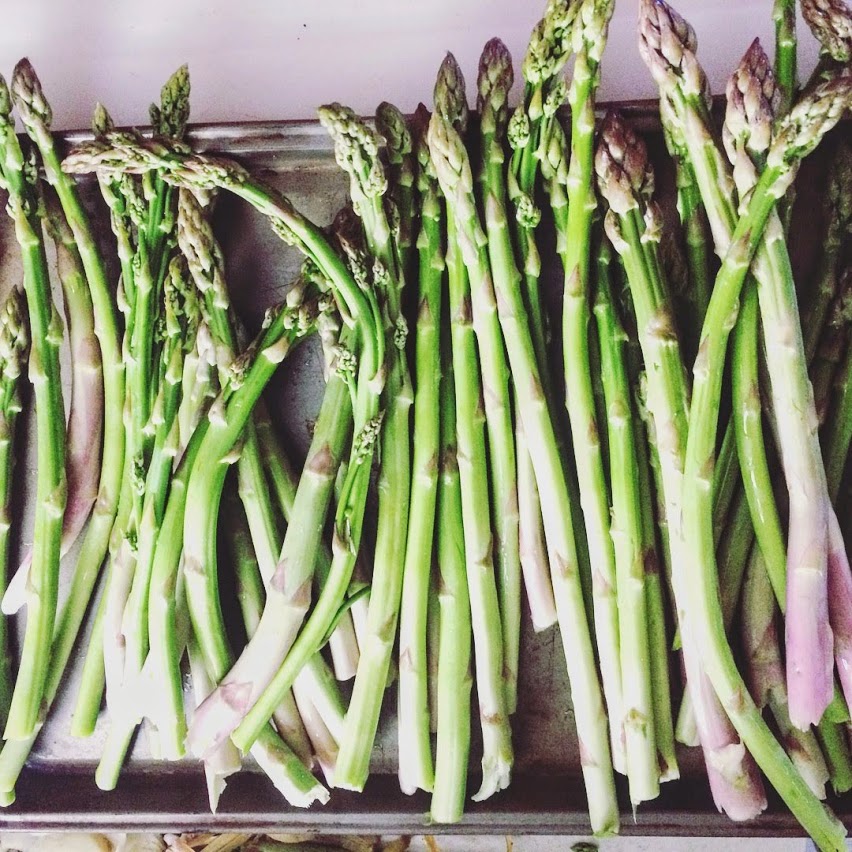
We also foraged hundreds of pounds of apples and pears, from a variety of trees in parks, deserted properties (with permission) and from a neighborhood tree.
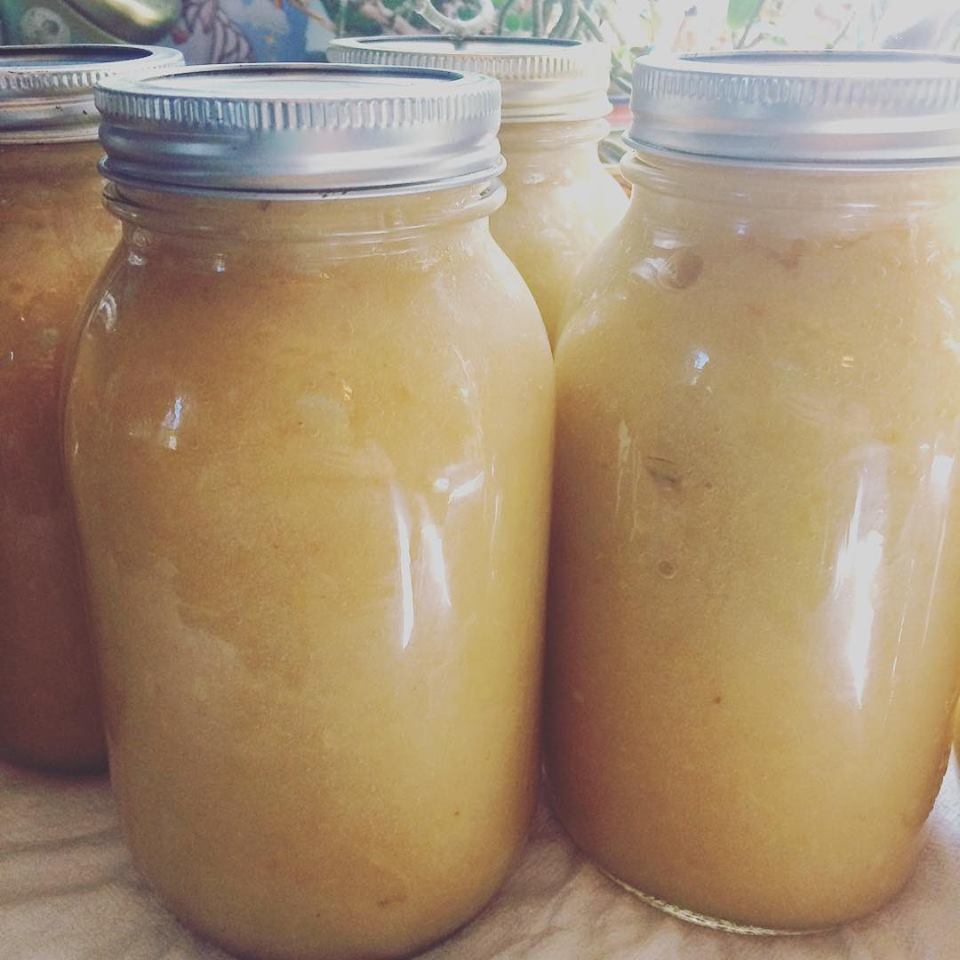
We put up about 50 quarts of applesauce from one neighbor’s tree, which otherwise would have been wasted since the homeowner doesn’t use the apples (they aren’t pretty or tasty for fresh eating). Since these trees are all unsprayed the apples are basically organically grown. Our applesauce is made with just apples and water, cooked until quite soft and put through a food mill. The kids generally put a sprinkle of cinnamon sugar on it when they eat it.
We get most of our jars free (let people know you’re looking for canning jars and you’ll eventually build up quite a stash), so that’s 50 quarts of free (healthy!) food. 🙂 For a family of our size, all of that applesauce makes a big difference during the year! The kids snack on it all winter and I also use it for baking. It also just plain tastes delicious.
We also find apples and pears in lots of rural parks where homesteads once were.
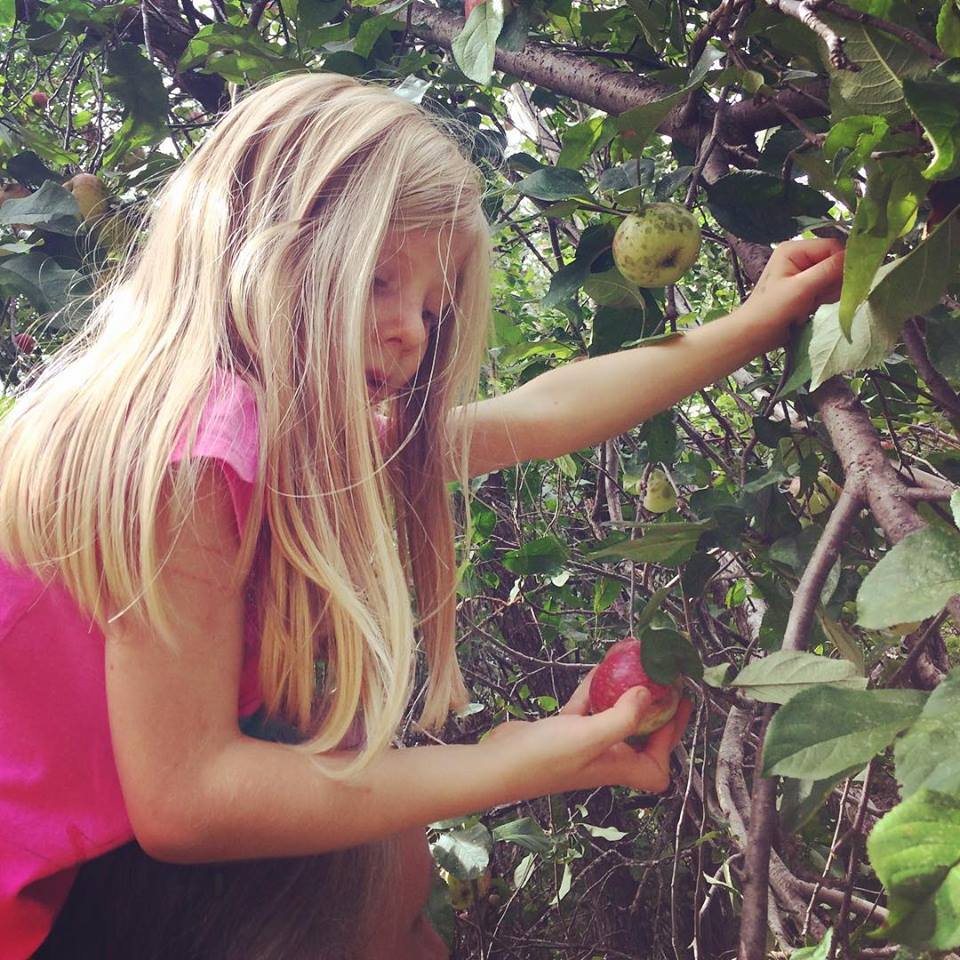
Some of the foods we foraged this year were new to us and are now family favorites, such as lambsquarters (who knew this garden weed was so delicious?), gooseberries (or as Fiona calls them, “watermelon peas”) and chicken of the woods mushrooms (which take “tastes like chicken” to a totally new level).
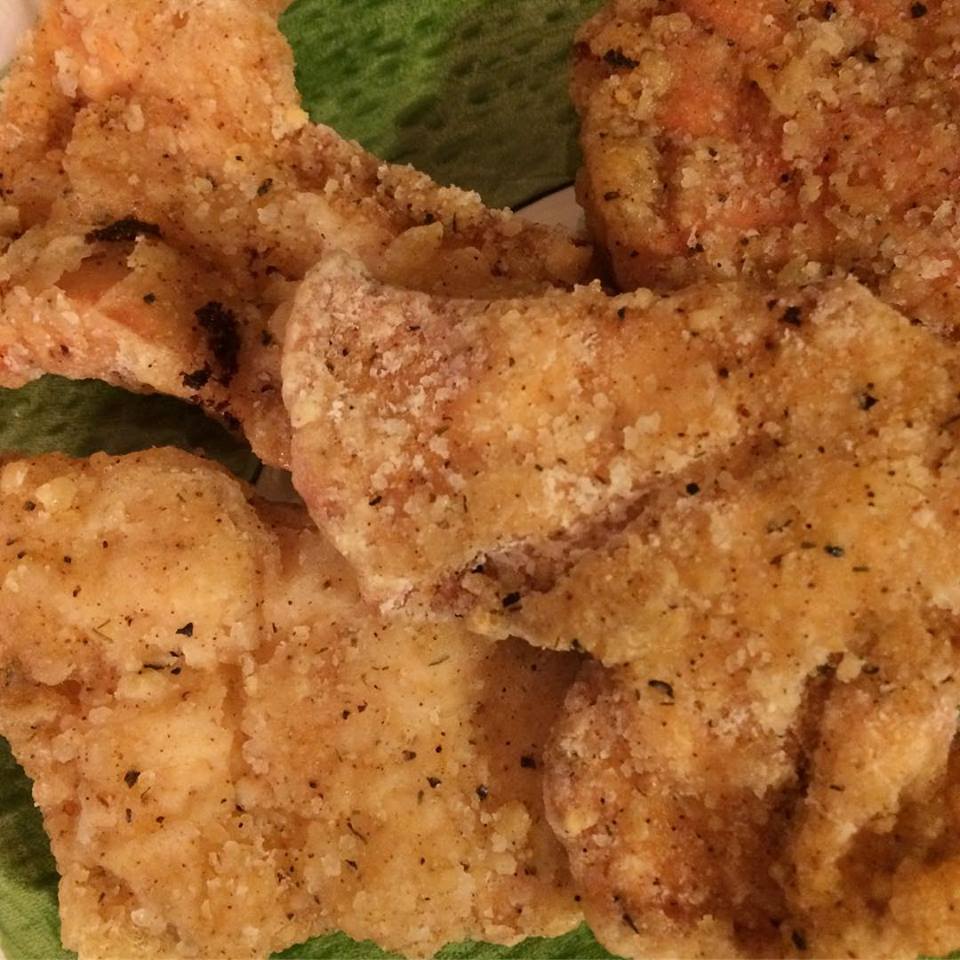
It’s so fun to discover new foods that not only taste wonderful but are all around us for free.
It’s cold and snowy outside now (we got about a foot of snow last night!) but the canning shelves and freezers are still full of wild foods that we’ll enjoy all winter. I really love reaching for a jar of elderberry pie filling, grinding roasted acorns for flour for the pie crust, tossing a handful of frozen asparagus in with the rice for dinner, and otherwise making use of all of these wild foods all year.
Elderberry cream cheese pie with acorn flour crust (gluten free)Here's a recipe that's perfect for the holidays using…
Posted by Alicia Bayer, Author on Wednesday, November 28, 2018
With every one, I am reminded of the family memories gathering and preserving them, and it brings a little bit of spring and summer back into the day. And wild foods just taste delicious. 🙂
Here’s to a happy foraging year in 2019!
